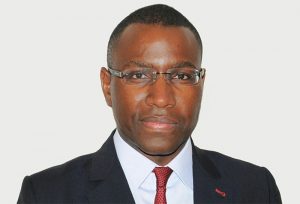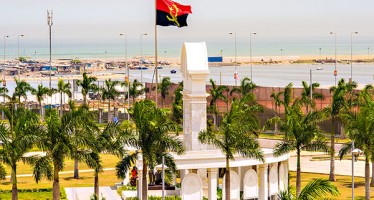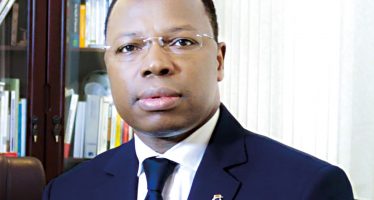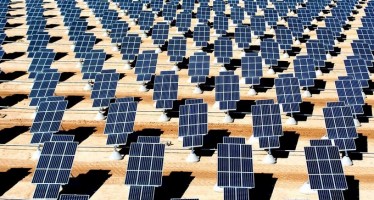World Bank Group: Development Finance Frontline – Strategic Investment Funds

CEO of the Senegalese Fund for Strategic Investments: Amadou Hott
This is the first of a series of occasional interviews with senior strategic investment fund (SIF) professionals. Tasked with attracting private investors to priority economic sectors and projects, SIFs combine developmental aims with commercial financial return objectives.
“The only way to achieve the sustainable development goals is to use more public capital strategically for unlocking private investment, particularly to infrastructure,” says Amadou Hott, CEO of the Senegalese Fund for Strategic Investments.
The Senegalese Strategic Investments Fund (FONSIS, for its acronym in French) is part of a rapidly expanding network of state-sponsored strategic investment funds now emerging in countries at all income levels. The World Bank Group and its partner, the Public Private Infrastructure Advisory Facility, work with FONSIS in an advisory role, and FONSIS provides input to the bank’s research on SIFs. In the World Bank Group’s recently issued Climate Change Action Plan, SIFs feature as one of the tools to crowd in private capital to climate mitigation and adaptation projects.
“Essentially, we invest in good opportunities that can meet our minimum projected rate of return”
Mr Hott was in Washington for meetings, and we caught up with him during a break in his schedule. Mr Hott represents a new generation of African financial sector professionals and leaders, who have returned to opportunities at home after earning degrees at leading global universities and gaining extensive experience on Wall Street, in the City of London, and in other global financial centres. He was also nominated a Young Global Leader by the World Economic Forum.
FONSIS has been doing some very interesting projects. Could you tell us about some of your signature investments?
One project that I think is innovative is our building and commercial operation of the POLIMED (Pôles d’Infrastructures Médicales) diagnostic centre within the public hospital of M’Bour, a coastal city seventy kilometres from Dakar. The hospital itself couldn’t afford to buy the required advanced technological equipment, and we were asked to build and run the diagnostic centre as a commercial operation, with the public doctors and technicians of the hospital providing the medical services to keep down patient fees. Since operations started at the end of December 2015, more than 4,000 patients have been diagnosed, and the financial results are looking good so far. We intend to replicate this model all over the country to upgrade our medical infrastructure.
Another interesting project is the 30 megawatt, €41 million, solar energy power plant Santhiou Mékhé, and a nine kilometre transmission line to the grid. We closed that deal this past February. We were approached by the project’s initial developer, and our role was to structure the financial side of the project, help finalize the power purchase agreement with the off-taker, reach out to potential investors, and negotiate the debt and equity contributions. We also put down about one million euros of our own capital as a cornerstone investor, to give the project credibility at the initial stage. We expect the plant to be producing electricity in late 2016. I think we’ve achieved a good result: about €40 of external equity and debt co-investment for every euro that we ourselves invested. In general, we aim to achieve a multiplier of around 10 on our own invested capital, but we achieved an exceptionally high multiplier in this case, as we managed to secure a debt/equity ratio of 80/20.
Essentially, we invest in good opportunities that can meet our minimum projected rate of return, or hurdle rate, but focus on projects that generate jobs and have a developmental impact in the framework of the Plan Sénégal Emergent (PSE). For example, within the energy sector we can provide early-stage money if we know that afterwards there is a good chance of private interest. Furthermore, we serve as a local champion of entrepreneurship, and have invested €1.5 million in a venture capital fund of €6.1 million for small and medium-sized enterprises (SMEs). As we see it, Senegal is heavily dependent on its export potential, and innovative SMEs have been instrumental in developing the export sector in many other countries.
FONSIS combines developmental objectives with those of a commercial investor. Isn’t this a contradiction?
Look, we are an investment holding company focused on creating value for investors in our projects, and we operate as a private equity investor on behalf of the Senegalese government. We are rigorous in our investment decisions, and our hurdle rate is 12%. I think we bring good value, both in terms of the social and economic contribution of the projects that we are able to deliver, and in terms of the financial returns that we are able to generate for the state.
Our staff’s background – as investment professionals in global financial centres, and from multinationals in our core sectors – means that we have access to a network of international private investors, we have transaction experience, we have negotiation experience, and our co-investment on behalf of the state brings credibility to our projects. We may, exceptionally, participate in projects that have returns below the hurdle rate, but only if the government, or a donor, provides an equivalent subsidy to the project, which, of course, has to be approved in the government budget.
Not all state-sponsored investment funds have been successful, and some have ended up losing significant amounts of their capital on politically motivated projects that were not profitable or even had a developmental impact. How do you solve this?
In my view, independence and transparency are key. FONSIS is established by dedicated legislation, not simply by decree, and the terms of our board and management transfer across election cycles. Our investment strategy, ticket size per investment, and project selection criteria have all been extensively published in the national press and elsewhere to reduce external pressure. And transparency helps provide a sense of public ownership of the fund. In any case, I don’t expect that the public decision makers, who have strongly stressed the need to invest only in viable projects, would try to impose any transaction on FONSIS. Our investment committee and our board are very independent, with healthy debates taking place before we approve any project. Furthermore, the requirement to secure equity co-investment from professional investors and non-recourse debt from tough commercial and development banks, provides further assurances that financial return criteria will be met by our projects.
You also need a very strong team of investment professionals, people that have a future after FONSIS in other financial institutions, and therefore a reputation to protect. Having a highly qualified team of experts that can find other attractive jobs relatively easily makes it easier to resist external pressure. The FONSIS legislation sets specific requirements for staff financial sector experience and education. We used a professional recruitment firm to help select our staff, and now have thirteen investment professionals with backgrounds in international private equity firms, the global top-five consultancies, various industries and sectors, and investment banking. We felt it was critical for the Fund’s success to be able to hire on relatively competitive terms—albeit lower than those of international private equities or investment banks. So, benefits and performance-based remuneration are similar to the private sector, and FONSIS is by legislation exempt from the public sector’s salary structure. This is standard practice for well-functioning SIFs and sovereign wealth funds.
Strategic investment funds seem to be emerging everywhere now in Europe, Asia, Africa and elsewhere. How replicable is the FONSIS model in other countries?
I cannot emphasise enough that capacity is key. In Africa, the bigger and more dynamic economies have this capacity available at home or in their diaspora. For example, Kenya, Nigeria, Côte d’Ivoire, several of the North African countries and, of course, South Africa. Smaller countries may need to get external help to build this capacity over time, and political authorities need to allow SIFs to operate as fully independent professional investment managers, within a stable government-defined mandate.
SIFs represent a relatively new model of blending public and private capital. What, in your view, are the implications for development finance overall?
When it comes to development aid, you can just do the math. The annual global development aid budget is about $140 billion, whereas the investment needed to address development and climate change runs into the trillions. Only institutional investors and the private sector have that kind of investment capital available. Development finance institutions have a critical role to play, because low and middle-income countries are capital scarce. So, they don’t have much public capital to deploy for attracting private investment.
In my view, developing countries that have the required capacity and conditions could set up FONSIS-like structures, receive some development aid or even commercial loans – so long as the projects generate financial returns as well – to fund those structures, and use that capital to crowd in private investment. While in Washington, I have attended the seminars of the Sustainable Development Investment Partnership, which seeks to increase the impact of public capital by finding new ways of leveraging it with private investment, and where both IFC and MIGA are members.
What attracted you to return back home to Dakar after an itinerant career as a global investment professional?
President Sall and I first met at the World Economic Forum in Cape Town, a year before he was elected, while I was running a financial advisory firm in Dubai. I felt this initiative was important to Senegal, so it was an easy choice to get involved by starting as his special adviser with a focus on investment issues and setting up FONSIS.
About the Authors
Håvard Halland is a senior economist at the World Bank’s Finance & Markets Global Practice, Investment Funds Group. His research and advisory work focus on sovereign wealth funds and strategic investment funds. In particular, his work has focused on fund mandates, governance frameworks, as well as economic and policy implications of SWFs’ domestic investment. He is an author or joint author of academic and policy research papers, book chapters, magazine articles and blogs, and regularly presents at international conferences and seminars. He earned a PhD in economics from the University of Cambridge.
Michel Noel is currently Head of Investment Funds in the Finance and Markets Global Practice, Equitable Finance and Institutions Vice-Presidency of the World Bank. Previously, Michel was Practice Manager for Non-Bank Financial Institutions in the Finance and Markets Global Practice and Lead Financial Sector Specialist in the Africa Region and in the Europe and Central Asia Region of the Bank. He was on secondment from the Bank to Dexia Asset Management in Geneva and London from 2000 to 2003 working on local infrastructure private equity funds. Previously, Michel held a number of positions in the Africa and Europe and Central Asia Regions of the Bank. He also consulted for the OECD Development Research Center in Paris. Michel holds a MA in Economics and Social Sciences from the University of Namur, Belgium.
You may have an interest in also reading…
Building Stronger Governance and Compliance Foundations in Sub-Saharan Africa
Analysts, politicians, economists and media pundits have kicked off 2016 with a largely pessimistic outlook for the global economy. Clearly
African Finance Evolution: It May Not Be Televised Yet, but the World Is Certainly Taking Note
Burkina Faso-based Fidelis Finance specialises in meeting leasing, credit, factoring, surety and payment guarantee needs — especially those of West
The Renewable Electricity Grid: The Future Is Now
New World Bank report finds that with the right policies and investments, countries can integrate high levels of variable renewable

















































































